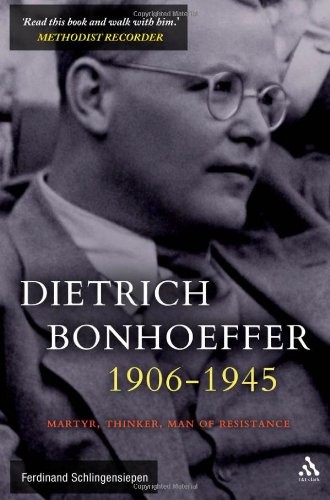Dietrich Bonhoeffer 1906–1945, by Ferdinand Schlingensiepen
Dietrich Bonhoeffer continues to captivate the Christian imagination in the English-speaking world 65 years after his murder by the Nazi regime, but this does not mean that his life and thought are always well understood. Individuals from across the ideological spectrum have for years lifted his ideas and actions out of their time and place in history so they can conscript them for their own causes. Drawing parallels between the present and the past is wrought with difficulties in any discussion of a historical figure, and in the case of Bonhoeffer, a complex individual who lived in a turbulent and fragmentary time, it is particularly problematic.
One measure of a good biography is the degree to which it keeps this anachronistic tendency in check. When judged by this criterion, Ferdinand Schlingensiepen's new book is without peer. The author's knowledge of Bonhoeffer and his familiarity with the massive amount of research that has been done over the past 50 years are readily apparent, and they result in a clear and compelling picture of Bonhoeffer's life, work and witness.
As one of the founders of the International Dietrich Bonhoeffer Society and a pastor and theologian in his own right, Schlingensiepen is a natural choice to follow in Eberhard Bethge's footsteps as Bonhoeffer's premiere biographer. His father was principal at one of the Confessing Church seminaries, a personal connection to this contentious period in German history that adds to his detailed grasp of the principal sources. He was also a close friend of Bethge, who approached him early on about writing an abridged version of his classic biography. Given the passage of time and with new information coming to light since Bethge published his work, especially the correspondence between Bonhoeffer and his fiancée Maria von Wedemeyer, Schlingensiepen concluded that a fresh interpretation of Bonhoeffer's life and thought was needed.





